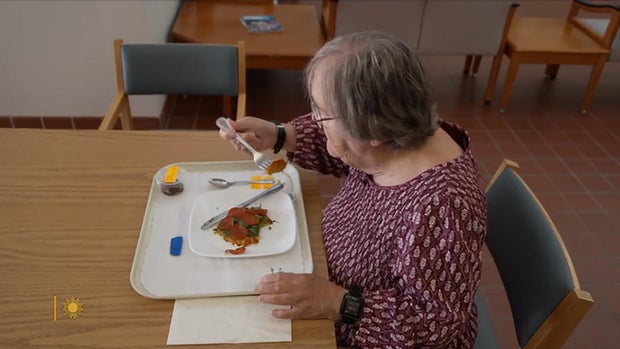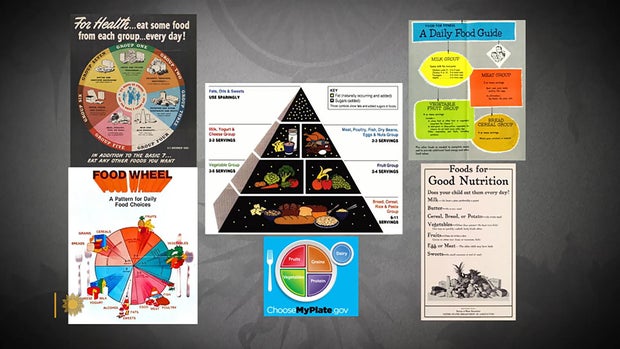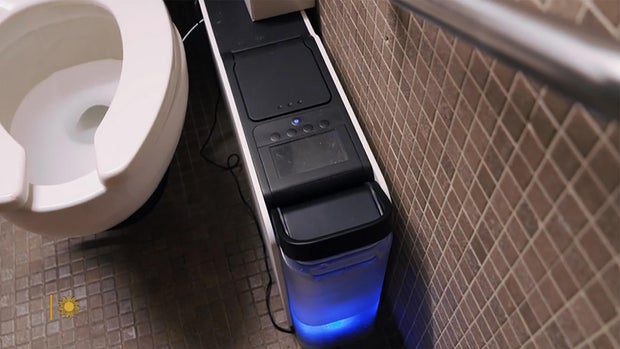CBS News
Senate set to confirm 200th Biden judge as Democrats tout “major milestone”

Washington — The Senate on Wednesday is set to confirm President Biden’s 200th judicial nominee, surpassing the number of appointments to the federal judiciary made by his two most recent predecessors at this point in their presidencies.
The Senate will mark the milestone after its approval of Krissa Lanham on Tuesday and with the vote on Angela Martinez’s confirmation Wednesday to seats on the federal district court in Arizona. With the confirmations of the nominees to the federal bench, Mr. Biden will have placed 42 judges on the U.S. courts of appeals, 155 judges on the U.S. district courts and two on the Court of International Trade. He also named Justice Ketanji Brown Jackson to the Supreme Court in 2022, a history-making nomination as she became the first Black woman to serve on the nation’s highest court.
There are 43 current open seats on the federal judiciary, and another 28 future vacancies, according to the U.S. Courts. Mr. Biden has two dozen nominees pending. The country has more than 860 authorized judgeships.
Senate Majority Leader Chuck Schumer called the confirmations a “major milestone,” saying on the Senate floor on Monday in preparation for the votes that “it’s a figure — 200 — that we can all be proud of, and shows how intensely focused we are on filling the bench with jurists who will make our democracy stronger and uphold the rule of law.”
Shawn Thew / Getty Images
Mr. Biden’s judicial appointments have slightly outpaced former President Donald Trump’s at this point in his fourth year in office. But surpassing the 234 judges Trump named to the federal bench during his first and sole term may be difficult given the Senate’s schedule in the run-up to the November election, since several Democratic senators in states won by Trump in 2020 are working to hold on to their seats and are likely to spend the coming months on the campaign trail.
“I think it’s pretty substantial when you consider what we’ve been up against,” Senate Judiciary Committee Chairman Dick Durbin told CBS News of the milestone, noting the makeup of the narrowly divided Senate and the one-vote Democratic advantage in the Senate Judiciary Committee, which considers the president’s nominations. The Senate consists of 48 Democrats, 49 Republicans and three independents who typically vote with Democrats. A simple majority, 51 votes, is needed to confirm a judicial nominee.
Though Durbin cheered the Senate’s work in confirming Mr. Biden’s judicial nominees, he explained why it would be hard to match or surpass the number confirmed during the Trump administration.
“It’s tough because Trump had a spurt there at the end when they gave him a package, I think there were a dozen judges in that package, maybe more,” Durbin added. “If we can get that kind of treatment from Sen. McConnell, I think we can reach it.”
The focus on judicial nominees sharpened under Trump, as he sought to reshape the federal judiciary, and his appointments to the Supreme Court may be the most enduring and consequential actions of his presidency. Trump named three justices to the nation’s highest court, widening its conservative majority to 6-3. Since the end of his administration in January 2021, the Supreme Court has overturned Roe v. Wade and ended affirmative action in higher education, and is poised to issue rulings curtailing federal regulatory power in the coming weeks.
Mr. Biden has emphasized diversity in his judicial nominees, including in the professional backgrounds of those the president has picked to serve.
The White House has stressed when announcing new rounds of judicial nominees that the president’s picks fulfill his “promise to ensure that the nation’s courts reflect the diversity that is one of our greatest assets as a country — both in terms of personal and professional backgrounds.”
By his first six months in office, Mr. Biden matched Obama’s number of nominees to the federal appellate courts who worked as public defenders. Additionally, among the president’s confirmed judges, more than 60% are women and over 60% are people of color, according to the White House.
The president also appointed the first Muslim American federal judge in U.S. history, Zahid Quraishi, to the federal district court in New Jersey.
CBS News
A study to devise nutritional guidance just for you

It’s been said the best meals come from the heart, not from a recipe book. But at this USDA kitchen, there’s no pinch of this, dash of that, no dollops or smidgens of anything. Here, nutritionists in white coats painstakingly measure every single ingredient, down to the tenth of a gram.
Sheryn Stover is expected to eat every crumb of her pizza; any tiny morsels she does miss go back to the kitchen, where they’re scrutinized like evidence of some dietary crime.
Stover (or participant #8180, as she’s known) is one of some 10,000 volunteers enrolled in a $170 million nutrition study run by the National Institutes of Health. “At 78, not many people get to do studies that are going to affect a great amount of people, and I thought this was a great opportunity to do that,” she said.
CBS News
It’s called the Nutrition for Precision Health Study. “When I tell people about the study, the reaction usually is, ‘Oh, that’s so cool, can I do it?'” said coordinator Holly Nicastro.
She explained just what “precise” precisely means: “Precision nutrition means tailoring nutrition or dietary guidance to the individual.”
The government has long offered guidelines to help us eat better. In the 1940s we had the “Basic 7.” In the ’50s, the “Basic 4.” We’ve had the “Food Wheel,” the “Food Pyramid,” and currently, “My Plate.”
CBS News
They’re all well-intentioned, except they’re all based on averages – what works best for most people, most of the time. But according to Nicastro, there is no one best way to eat. “We know from virtually every nutrition study ever conducted, we have inner individual variability,” she said. “That means we have some people that are going to respond, and some people that aren’t. There’s no one-size-fits-all.”
The study’s participants, like Stover, are all being drawn from another NIH study program called All Of Us, a massive undertaking to create a database of at least a million people who are volunteering everything from their electronic health records to their DNA. It was from that All of Us research that Stover discovered she has the gene that makes some foods taste bitter, which could explain why she ate more of one kind of food than another.
Professor Sai Das, who oversees the study at Tufts University, says the goal of precision nutrition is to drill down even deeper into those individual differences. “We’re moving away from just saying everybody go do this, to being able to say, ‘Okay, if you have X, Y and Z characteristics, then you’re more likely to respond to a diet, and somebody else that has A, B and C characteristics will be responding to the diet differently,'” Das said.
It’s a big commitment for Stover, who is one of 150 people being paid to live at a handful of test sites around the country for six weeks – two weeks at a time. It’s so precise she can’t even go for a walk without a dietary chaperone. “Well, you could stop and buy candy … God forbid, you can’t do that!” she laughed.
While she’s here, everything from her resting metabolic rate, her body fat percentage, her bone mineral content, even the microbes in her gut (digested by a machine that essentially is a smart toilet paper reading device) are being analyzed for how hers may differ from someone else’s.
Nicastro said, “We really think that what’s going on in your poop is going to tell us a lot of information about your health and how you respond to food.”
CBS News
Stover says she doesn’t mind, except for the odd sounds the machine makes. While she is a live-in participant, thousands of others are participating from their homes, where electronic wearables track all kinds of health data, including special glasses that record everything they eat, activated when someone starts chewing. Artificial intelligence can then be used to determine not only which foods the person is eating, but how many calories are consumed.
This study is expected to be wrapped up by 2027, and because of it, we may indeed know not only to eat more fruits and vegetables, but what combination of foods is really best for us. The question that even Holly Nicastro can’t answer is, will we listen? “You can lead a horse to water; you can’t make them drink,” she said. “We can tailor the interventions all day. But one hypothesis I have is that if the guidance is tailored to the individual, it’s going to make that individual more likely to follow it, because this is for me, this was designed for me.”
For more info:
Story produced by Mark Hudspeth. Editor: Ed Givnish.
“Sunday Morning” 2024 “Food Issue” recipe index
Delicious menu suggestions from top chefs, cookbook authors, food writers, restaurateurs, and the editors of Food & Wine magazine.
CBS News
A new generation of shopping cart, with GPS and AI

Watch CBS News
Be the first to know
Get browser notifications for breaking news, live events, and exclusive reporting.
CBS News
“All hands on deck” for Idaho’s annual potato harvest

Watch CBS News
Be the first to know
Get browser notifications for breaking news, live events, and exclusive reporting.






